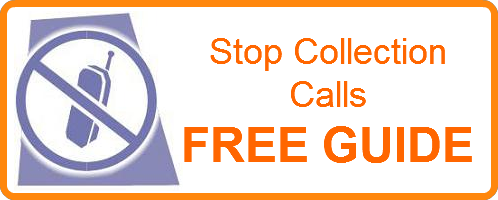
When it comes to the subject of "Credit Repair", you have choices. Should you Do it Yourself or Pay someone for credit repair services?
There is no clear answer to this question because it depends on several factors:
There is a misnomer that a professional credit repair company can "magically" make bad credit disappear from your credit report!
The point of credit repair is to make sure that any ERRORS on your CREDIT REPORT are removed.
What kind of errors can be removed from your Credit Report?
- debts that you have paid off that still show an outstanding balance due
- debts or a bankruptcies that have been on your credit report from longer than the statute of limitations in your state allows
- judgments that have been satisfied (paid-in-full or settled)
- Incorrect personal information...Social Security Number, Date-of-Birth, etc.
Credit Repaire is simple, yet can be VERY TIME CONSUMING!
- Order your credit reports (www.annualcreditreport.com)
- Review all three credit reports very carefully
- Dispute any errors you find
- Document ALL communication & keep copies of EVERYTHING
- Follow-UP, Follow-Up, Follow-Up
Although these steps seem easy, you will most likely have to dispute items several times before getting to a resolution with the credit bureau. Some items will be easy to clean up, such as incorrect address or employer information. However, removing trade lines from your credit report can be more tricky and can take several months and many hours of your time to complete.
Why pay for Credit Repair services?
Although the Credit Repair process is relatively simple, it can be extremely time consuming. A reputable Credit Repair agency will handle the hours of paperwork and follow-up for you for a relatively small fee. Plus, they can often clean up your credit report much faster than you can on your own. Good Credit Repair agencies have been doing this work for years and know the tricks and techniques to get items removed quickly.
It's important to do your research and only work with a company that you trust and that has a good BBB rating. There are a lot of scammers out there, but there are a lot of good companies too.
Look for a Credit Repair company that charges fees based on performance. Most good Credit Repair companies will bill you a set amount once an item has been removed from your credit report, however, there are others that will charge a monthly fee until the disputed items have been removed.
It's up to you to decide if it makes sense to pay for services or do it yourself. Only you can make that decision based on your available time and budget. If you have outstanding debts that you actually owe, we can help you eliminate those debts for much less than what you currently owe.
If you'd like more information, give us a call at 877-492-4109 or simply click on the link below for a free debt elimination evaluation.




 The counterfeit card reader captures the credit card information of everyone who uses the machine. (On ATM machines, crooks also attach tiny video cameras to steal PIN numbers.)
The counterfeit card reader captures the credit card information of everyone who uses the machine. (On ATM machines, crooks also attach tiny video cameras to steal PIN numbers.)
 If you are late or behind on your credit card payments, you may receive a call from your creditors offering you a Hardship Plans.
If you are late or behind on your credit card payments, you may receive a call from your creditors offering you a Hardship Plans. 




 If you’re struggling with debt, you likely feel like the weight of the world is resting on your shoulders each and every day. Whether it is due to student loans, mortgages, credit cards or other financial struggles, the clutches of debt are enough to make anyone feel trapped and helpless. Luckily, no matter how bad your debt may seem, there are techniques for living debt free.
If you’re struggling with debt, you likely feel like the weight of the world is resting on your shoulders each and every day. Whether it is due to student loans, mortgages, credit cards or other financial struggles, the clutches of debt are enough to make anyone feel trapped and helpless. Luckily, no matter how bad your debt may seem, there are techniques for living debt free.
 Worrying about your debt won't make it go away, but for millions of Americans the stress from deepening debt is becoming a major pain in the neck - and back and head and stomach! But stressing about your debt won't make it go away.
Worrying about your debt won't make it go away, but for millions of Americans the stress from deepening debt is becoming a major pain in the neck - and back and head and stomach! But stressing about your debt won't make it go away. 
 We get asked this question nearly every day. So, it's time to answer the question:
We get asked this question nearly every day. So, it's time to answer the question:

